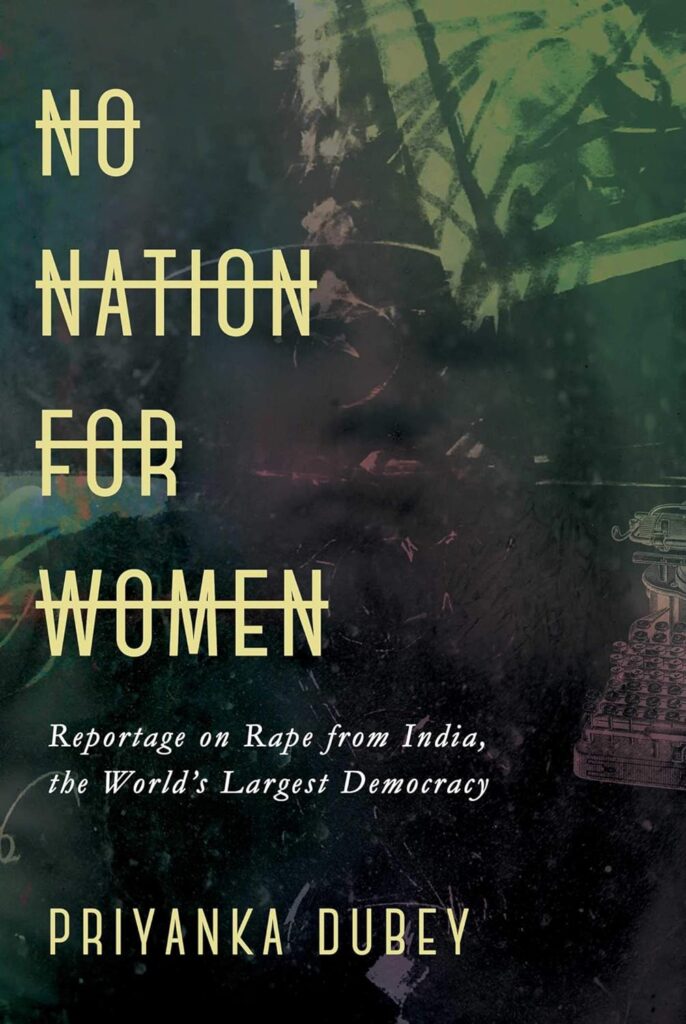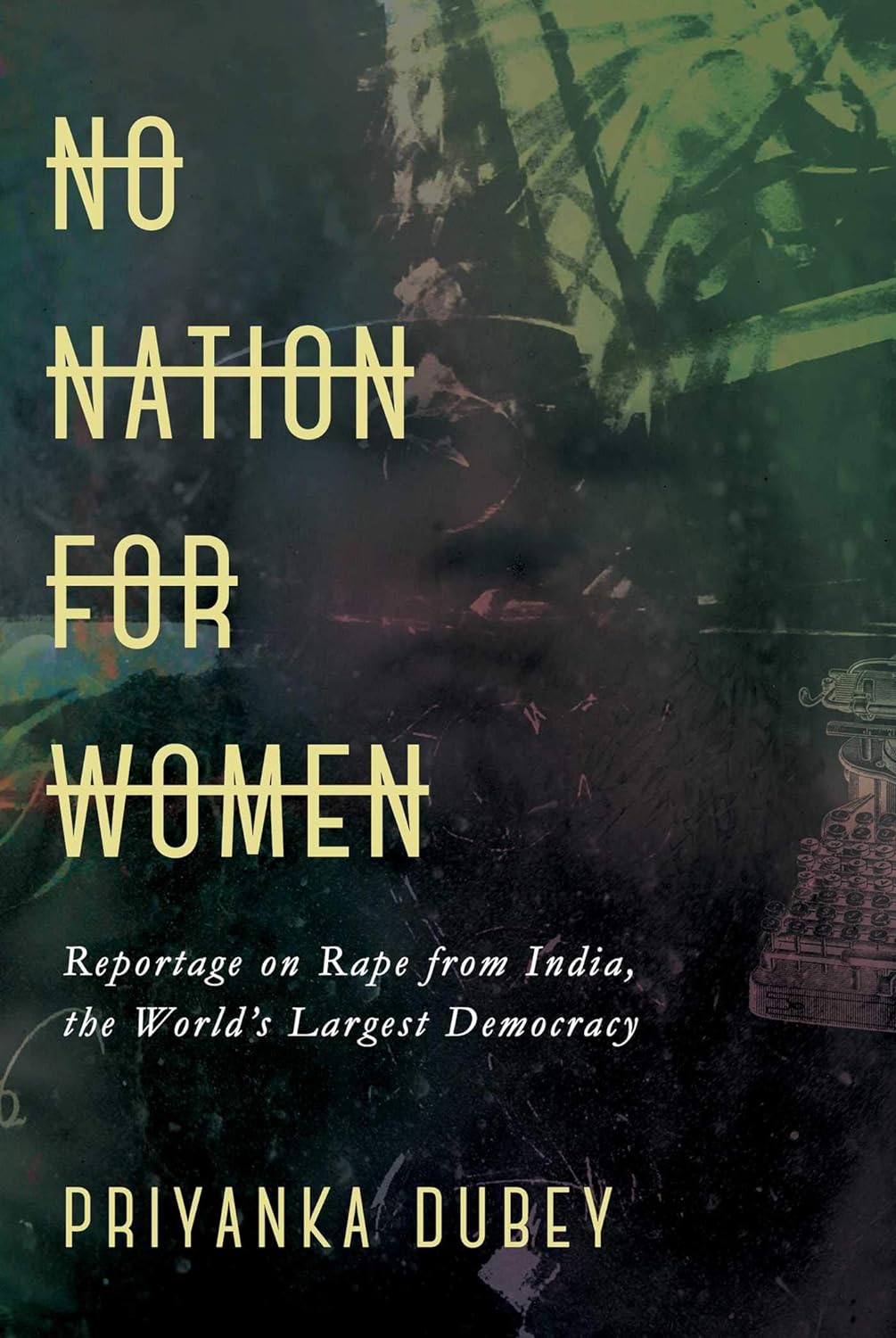
Feminism begins with a basic recognition and a simple question. The recognition is that women have adhered to a class having inferior status in society, and the question is, what would the world be like without the social, political, economic, or sexual subjugation of women?
In her debut as an author, No Nation for Women: Reportage on Rape from India, the World’s Largest Democracy, Delhi-based journalist Priyanka Dubey emphasizes these key points. Published by Simon and Schuster in 2018, this detailed and hard-hitting account of crime against women mostly from lower socio-economic classes and castes residing in rural and suburban India makes us think out of the bubble of our urban imaginations. While statistics and surveys tend to cover mostly urban areas, we forget how vastly different the numbers would be if we moved only a hundred kilometres from the metropolitan cities. Dubey’s deeply personal (but not opinionated) account also throws light on the turbulent lived experiences of the women crime reporters working in India, the democracy that ranks 148 out of 170 countries in the ‘Women, Peace and Security Index, 2021’. Dubey’s investigative reporting on human rights and social justice takes her through dark alleys and deserted fields infested with fear, insecurity, and threats.
The book is composed of 13 chapters covering almost 25 rape cases from the fringes of the subcontinent. The author has made a sincere attempt to depict how the social and economic diversity of India as a country trickle down to the landscape of crime against women- something that the newspaper headlines fail to make us realize as we sift through the paper every morning with our morning tea in hand. The segments cover political rapes in the North East, small-town rapes, Sexual crimes against De-notified tribes, rapes of ‘lower caste’ minors, abuse of children, and in-custody rapes. Each of these reports takes the reader through the author’s path of reaching the locations and makes us confront the ground reality of our country, which is in stark contrast with somewhat sensitized urban upper-middle-class discourses.
The name of this book also reminds us of an article by Ritu Menon which talks about how women can be exiles in their ‘own countries’, and ‘how very elusive a sense of belonging can be for them’. A space that strips women of their dignity, and right to basic freedom and speech and denies them safety in all senses, can never be their home.
While certain sections and details of the rapes are triggering and graphic, that cannot be an excuse for the conscious citizen to engage in one of the pressing issues around crime against women in India. Women from marginal communities struggle to get the bare minimum of justice and file an FIR after being ‘taken revenge of’ or ‘put in their place’ by men because, in India, justice is not for all. The last chapter of the volume on schemes for rehabilitation and compensation of rape victims in India, however, did not serve as a strong wind-up to this powerful book. Named The Question of the Rehabilitation of Rape Survivors in India, this concluding segment is more of an amalgamation of personal stories, policies for relief in India, lists of Acts, and a soliloquy on the need for legal changes for a rehabilitative model of justice.
Contextually, it is important to highlight how Amia Srinivasan raises questions about how to formulate a regulation that prohibits the sort of sex that is produced by patriarchy, in her daring collection of non-fiction essays on feminism and crimes against women in the 21st century:
‘It doesn’t matter whether they (men) have this expectation because it is an expectation already internalized by many women. A woman going on with a sex act she no longer wants to perform, knowing she can get up and walk away but knowing, at the same time, that this will make her an object of male contempt: there is more going on here than mere ambivalence, unpleasantness, and regret. There is also a kind of coercion: not directly by him (an individual man), perhaps, but by the informal regulatory system of gendered sexual expectations. Sometimes the price for violating these expectations is steep, even fatal (Srinivasan 2021).’
The answer is that the law is probably the wrong tool for this job. In one of her interviews with The Wire, Dubey stresses the importance of changing the patriarchal thought process at home to bring bigger changes to society and reduce crime against women. No Nation for Women makes us rethink the significance of active listening to the victim, empathy and radically opposing patriarchy by striking the root of it as the building blocks of a safer space for women.
References:
Amia Srinivasan, Amia. (2021). The Right to Sex: Feminism in the Twenty-First Century. Macmillan Publishers.
***
Srilagna Mazumdar is a Kolkata-based researcher, cultural history practitioner, and art enthusiast interested in archiving and public history.
